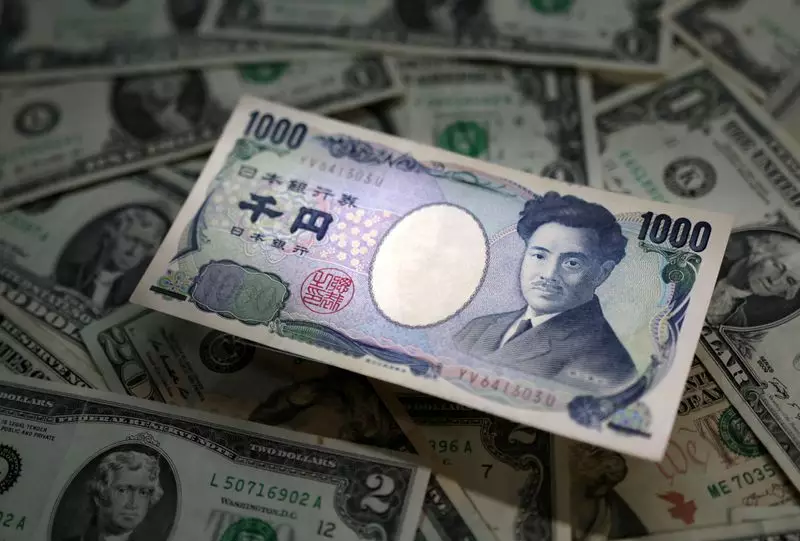In recent days, the dynamics of the global currency markets have been significantly influenced by political developments, particularly in Japan. The yen has faced substantial pressure, currently hovering near a three-month low, raising flags among investors regarding the potential for volatility ahead. This article seeks to dissect the factors affecting the yen, the dollar’s robust performance, and the implications of these trends on broader financial markets.
The Japanese yen’s recent predicament can largely be attributed to the results of the national elections held over the weekend. With the ruling coalition, primarily led by the Liberal Democratic Party (LDP) and its junior partner Komeito, failing to secure a parliamentary majority, the political landscape in Japan appears precarious. This outcome has fostered uncertainty about future fiscal and monetary policies, leaving investors wary.
Following the election, the yen traded at 153.12 to the dollar, making a slight recovery from an alarming low of 153.885—the weakest point the currency has reached since July. Market analysts suggest that the absence of a decisive majority might lead to protracted negotiations to form a workable government. Carol Kong, a currency strategist with the Commonwealth Bank of Australia, predicts that the resultant fiscal policies may tilt towards a more expansionary stance under the new government. Such implications loom large, influencing the outlook for fiscal discipline in Japan.
The Bank of Japan (BOJ) is set to announce its monetary policy decision soon, with widespread expectations that interest rates will remain unchanged. However, the persistent political instability might compel the BOJ to adopt a wait-and-see approach, maintaining the status quo for an extended period. This cautious stance in the face of mounting uncertainty could further weigh on the yen, as investors reassess their positions during a time characterized by financial volatility.
Additionally, the yen’s fragility extends to its performance against other major currencies, struggling to reclaim lost ground against both the euro and the British pound. Currently, it floats around 165.73 to the euro and 198.72 to the pound, indicators of the currency’s overall challenges amid the evolving political backdrop.
Contrasting the yen’s struggles, the U.S. dollar is on track for its most impressive month in over two years, demonstrating a strong upward trajectory against a basket of currencies. This strength can be attributed to a series of resilient economic indicators emerging from the United States, enhancing market confidence. Furthermore, increasing speculation surrounding a potential victory for Donald Trump in the upcoming presidential election has added a layer of complexity to the dollar’s advance.
Market participants view Trump’s potential policies—aligned with higher tariffs, tax reform, and changes to immigration as inflationary, which, while negative for bonds, are seen as supporting the dollar. All eyes are now on the impending releases of crucial economic indicators, including the core personal consumption expenditures (PCE) price index and the nonfarm payrolls report, both regarded as key barometers for future Federal Reserve policy traction.
As the dollar retains its strong footing, fluctuations in adjacent currencies signal investors’ cautious nature in advancing positions ahead of substantial data releases. Both the euro and sterling have seen slight gains, underscoring ongoing market adjustments as they respond to global economic narratives and political uncertainties.
For the Australian dollar and the New Zealand dollar, the outlook appears clouded, particularly considering their sensitivity to potential shifts stemming from a Trump victory. Analysts predict that emerging market currencies might experience heightened volatility, particularly if investors brace for a larger economic fallout from evolving political conditions in developed markets.
The currency markets stand at a pivotal juncture, entwined with the uncertainties stemming from Japan’s political landscape and broader economic indicators from the United States. Traders and investors must navigate this maze of evolving circumstances carefully, as outcomes from upcoming data releases could redefine expectations and reshape trading strategies in the weeks to come. In such a climate, flexibility and informed decision-making will be key for participants looking to mitigate risks and capitalize on emerging opportunities.

